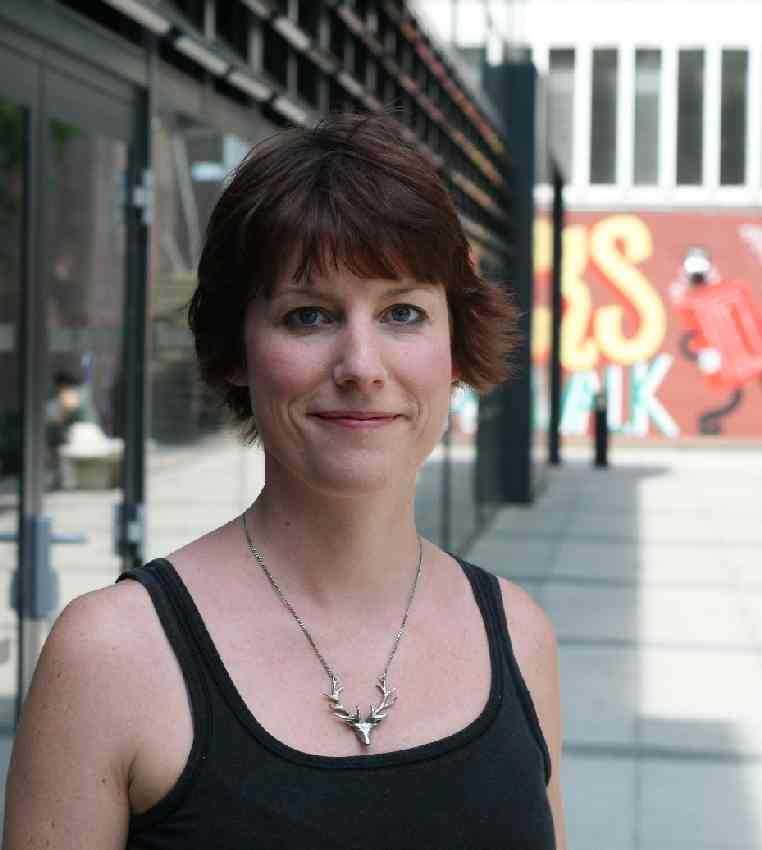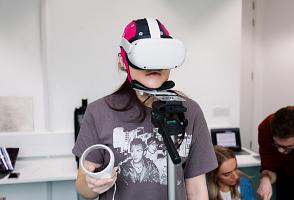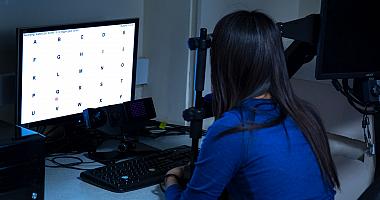BSc (Hons)
Psychology with Forensic Psychology
Content navigation menu
Why study BSc Psychology with Forensic Psychology at Goldsmiths
On this degree you'll explore psychological theories, methods and processes relating to the legal, criminal and civil justice systems.
- You'll develop a thorough understanding of the key issues and debates that relate to psychology and forensic psychology. You’ll also be trained in the design of experiments, hands-on lab skills, and the use of psychology-relevant software for data and statistical analysis.
- You'll benefit from a mentoring scheme during which you’ll be paired with a member of academic staff with forensic psychology expertise who will advise you on career options and support your employability skills.
- You will gain a wide range of transferable skills associated with the practice of psychology, including critical thinking, analytical skills, reflection, self-motivation, planning and organisation.
- You will be actively encouraged to seek opportunities for summer internships or other work experience placements to further build on your skills and knowledge.
- During your final year of study you'll carry out a research project under close supervision of a member of academic staff whose research interests and expertise are in the forensic psychology field. You will learn about all aspects of research in the area of forensic psychology, which forms one of the roots of our research-led teaching.
- Working and learning in an applied fashion will allow you to gain an appreciation of how to use available evidence-bases to inform practice, and how research can feed back into the working process.
- Our academics are experts in their field, and you’ll have the opportunity to get involved in the world-class research taking place in the department.
- You’ll have access to fantastic facilities. These include laboratories, a visual perception and attention laboratory, virtual reality equipment, and a mock police interview suite with recording equipment and an observation room.
- The programme is accredited by the British Psychological Society (BPS), so you can be assured of the very best education and training in psychology during your degree. BPS-accredited programmes are highly valued by employers and give students a route to full BPS membership.
Contact the department
If you have specific questions about the degree, contact Fiona Gabbert.
UCAS code
8C00
Entry requirements
A-level: BBB
BTEC: DDM
IB: 33 points overall with Three HL subjects at 655
Length
3 years full-time or 4 years full-time with a placement year
Fees
Home - full-time: £9250
International - full-time: £20840
Department
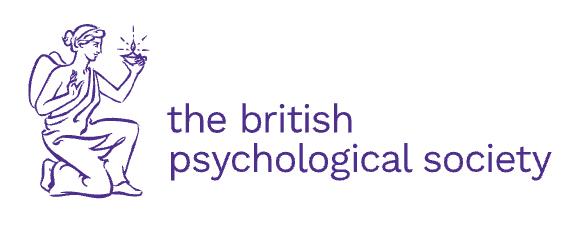
The degree is accredited by the British Psychological Society as conferring eligibility for Graduate Membership of the Society and also the Graduate Basis for Chartered Membership, which is the first step towards becoming a Chartered Psychologist.
Having just completed my degree I can reflect back on a very rewarding and fulfilling three years. I feel confident to go into the workforce having gained a diverse set of skills and knowledge. The Forensic Team are extremely caring, supportive, and super active in ensuring that the degree translates into the real world. I am grateful for the events and opportunities that have arisen.
Shewon, BSc Psychology with Forensic Psychology
What you'll study
Year 1 (credit level 4)
Learning will be structured across three interdisciplinary themes:
- Mental Health and Wellbeing
- Cognition and Culture
- Life and Society
Each theme is supplemented by integrated Research Methods training, and Personal and Professional Development.
Mental Health and Wellbeing
In the first term, we will explore the question ‘what does it mean to be well’, drawing on psychological theories and research. This incorporates contributors to wellbeing, including physical health such as stress and sleep, and social, cultural and environmental factors.
In the second term, we will explore the biological and neurological basis for wellbeing and mental health. There will be a particular focus on applying knowledge of brain development and function to common life experiences.
Cognition and Culture
In the first term, we explore what cognition is and how it is measured. We will explore how cognitive domains are applied in the context of human-computer interaction, talent in art and sports, policing, and political discourse. We will also consider how successfully cognitive science captures diverse cultural perspectives.
In the second term, we will explore neuroscientific and behavioural foundations of perception (vision, audition, touch, taste and smell), imagery, attention and action. We will place particular focus on studying these concepts from a neuropsychological and applied perspective, considering how our understanding of perception, attention and action can shed light on contemporary topics such as aesthetic experience and the arts, mindfulness, video gaming, cognitive enhancement and expert performance.
Life and Society
In the first term, we introduce the concept of the self, considering ourselves at the personal, interpersonal and societal levels. We explore relationships, intersectional identity, and individual differences, and reflect on and challenge our own experiences and intuitions, integrating these with theory and research to inform a scientific understanding of self.
In the second term, we focus on human development as a dynamic and interactionist process – a lifetime of learning from ourselves, others, and the wider environment. We take a developmental cognitive neuroscience perspective to inform our understanding of topics including neurodiversity, multilingualism, and healthy ageing.
Teaching style
Teaching in Years 1 and 2 occurs in themed blocks, with each theme consisting of a range of lectures, seminars, practicals, and small group/independent work. Terms 1 and 2 start with an introductory week, which emphasises community building and introduces core concepts relevant to the whole term.
How you'll be assessed
In Years 1 and 2, each theme will have diverse assessments that are designed to reflect multiple important skills for further study and future employment.
These will include writing assignments (eg case study, opinion piece, policy brief), group work assignments (eg running a small experiment), oral/interactive assignments (eg presentation to a small group, podcast), and written or oral exams (eg timed essay).
Credits and levels of learning
An undergraduate honours degree is made up of 360 credits – 120 at Level 4, 120 at Level 5 and 120 at Level 6. If you are a full-time student, you will usually take Level 4 modules in the first year, Level 5 in the second, and Level 6 modules in your final year.
Note about optional modules
The optional module list is indicative of the typical modules offered, but is not intended to be construed or relied on as a definitive list of what might be available in any given year. The module content and availability is subject to change.
The Department of Psychology has a long-standing research strength in forensic psychology, and there is an award-winning Forensic Psychology Unit at Goldsmiths that brings together expertise in areas such as evidence gathering, lie detection and bystander intervention.
Staff in the department include:
- Professor Fiona Gabbert, who has an international research track record in investigative interviewing, and convenes this degree
- Dr Adrian Scott, whose specialisms focus on investigative interviewing, stalking behaviour, and eye-witness testimony
- Dr Ashok Jansari, who brings his interest in exceptional face recognition abilities from CCTV images
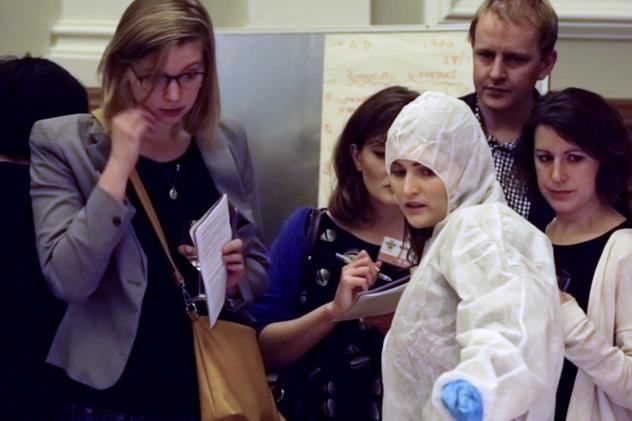
The Forensic Psychology Unit holds immersive science-theatre events to share and gather research on areas such as eye-witness investigation and the interviewing of victims.

You can pick from modules covering topics as diverse as the use of psychology in a legal setting, psychopathology, and social-moral development.
Study routes
As well as this degree, we offer a core BSc Psychology programme and several pathways that allow you to focus on the following specialisms:
Professional placement
All Goldsmiths BSc Psychology degrees contain an optional placement year between the second and final year of study. You will be responsible for securing a placement, but we can support you through this process.
The industrial placement year is a great opportunity for you to gain work experience, build confidence and contacts, develop your skills and industry insight, and enhance your career prospects.
You'll be supported throughout your placement year by a placement tutor, who will provide you with guidance and liaison between you and your employer.
Goldsmiths was unique – it blew my mind! The lecturers were very down-to-earth and supportive, and it was easy to make friends as everyone is really welcoming and warm.
Sarah, undergraduate psychology graduate (Analyst, Bank of America)

Careers
Successfully completing the BSc Psychology with Forensic Psychology will enable to you progress to specialised Masters courses, such as our MSc Forensic Psychology. These are the first steps in pursuing a career as a forensic psychologist or investigative psychologist.
Students from our undergraduate psychology degrees go on to a broad range of careers and future study in areas including:
- Forensic psychology
- Clinical psychology
- Occupational psychology
- Market research
- Advertising
- Media psychology
- Consultancy
- Research psychology
Many of our students have gained professional positions with major employers within:
- HM Prison & Probation Service
- Policing
- Security agencies
- The Home Office
Others are pursuing a Professional Doctorate to complete Stage 2 and gain Chartered Forensic Psychologist Status.
The programme is accredited by the British Psychological Society (BPS), which means that alumni are eligible for graduate basis for Chartership with the BPS – vital if you want a career as a psychologist in the future.
You can find out more about career options after graduating on our psychology careers page.
Skills
Throughout the degree you will receive a thorough training in:
- The design and evaluation of empirical research
- The clinical applications of research, and how to use research to inform practice
- Statistical analysis
- Lab skills
- The use of specialist psychology-relevant software
In addition, you'll develop the following transferable skills:
- Critical thinking and analytical skills
- The ability to look at issues from different perspectives
- Data and information processing skills
- Reflection skills
- Self motivation
- Planning and organisation skills
- Oral and written communication skills
Skills and employability training
The Department of Psychology has its own Skills and Employability Programme for students, starting in the first term with a full first-year course on the topic. We are keen that you understand what kind of transferable skills you will develop during the degree, and how you can make the best impression on future employers.
We have strong links with employers of psychology graduates, and the programme has been set up to support you to actively seek relevant work knowledge and experience. This experience can help you develop and recognise the professional-level skills that are highly sought after in the job market.
Entry requirements
We accept the following qualifications:
A-level: BBB
BTEC: DDM
International Baccalaureate: 33 points overall with Three HL subjects at 655
Access: Pass with 45 Level 3 credits including 30 Distinctions and a number of merits/passes in subject-specific modules
Scottish qualifications: BBBBC (Higher) or BBC (Advanced Higher)
European Baccalaureate: 75%
Irish Leaving Certificate: H2 H2 H2 H2
Additional requirements
You should normally have at least Grade B/Grade 6 in GCSE (or equivalent) in Mathematics or Statistics, and English.
International qualifications
We also accept a wide range of international qualifications. Find out more about the qualifications we accept from around the world.
If English isn’t your first language, you will need an IELTS score (or equivalent English language qualification) of 6.0 with a 6.0 in writing and no element lower than 5.5 to study this programme. If you need assistance with your English language, we offer a range of courses that can help prepare you for degree-level study.
Alternative qualifications and experience
See our full list of undergraduate entry qualifications.
We exercise flexibility where entry requirements are concerned, and make offers based on your enthusiasm and commitment to your subject, as shown by your application and personal statement, qualifications, experience and reference.
Your referees are welcome to include any relevant contextual comments around your academic achievements. We’ll look at all these things when making a decision on your application, as well as your qualifications and grades.
We frequently interview mature applicants (over 21) or those with alternative qualifications, and have a long tradition of encouraging students from all social backgrounds to study at our university.
Fees and funding
Annual tuition fees
These are the UG fees for students starting their programme in the 2024/2025 academic year.
- Home - full-time: £9250
- International - full-time: £20840
If your fees are not listed here, please check our undergraduate fees guidance or contact the Fees Office, who can also advise you about how to pay your fees.
It’s not currently possible for international students to study part-time if you require a Student Visa, however this is currently being reviewed and will be confirmed in the new year. Please read our visa guidance in the interim for more information. If you think you might be eligible to study part-time while being on another visa type, please contact our Admissions Team for more information.
If you are looking to pay your fees please see our guide to making a payment.
Funding opportunities
We offer a wide range of scholarships and bursaries, and our Careers Service can also offer advice on finding work during your studies. Find out more about funding your studies with us.
Additional costs
In addition to your tuition fees, you'll be responsible for any additional costs associated with your course, such as buying stationery and paying for photocopying. You can find out more about what you need to budget for on our study costs page.
There may also be specific additional costs associated with your programme. This can include things like paying for field trips or specialist materials for your assignments. Please check the programme specification for more information.
